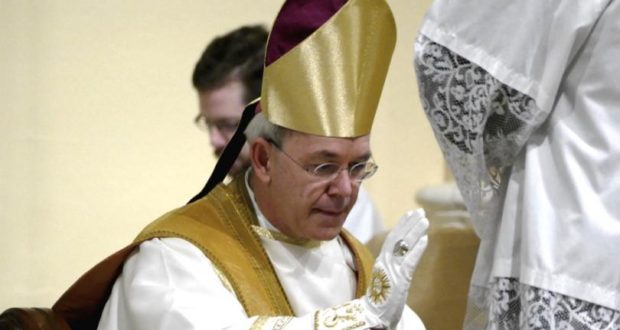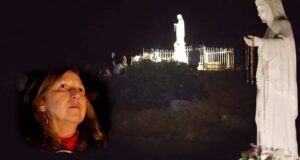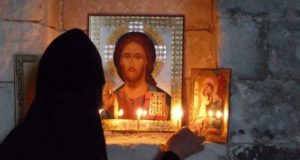علق الأسقف أثناسيوس شنايدر ، في مقابلة إذاعية جديدة ، على الشائعات القائلة بأن البابا بنديكتوس البابا بنديكتوس ، الذي أطلق سراح القداس اللاتيني التقليدي.. يعتقد الأسقف أن مثل هذه الخطوة ستكون “إساءة استخدام للسلطة” و “ضررًا كبيرًا لحياة الكنيسة”. إذا حدث ذلك ، فإن الكهنة “يمكنهم الاستمرار في الاحتفال بهذا القداس لأنه قداس الكنيسة بأكملها وللمؤمنين الحق [في] ما هو مقدس”. يعتقد شنايدر أيضًا أن جمعية القديس بيوس العاشر (SSPX) “ليست خارج الكنيسة” ، بحيث يمكن للمرء أن يذهب إلى هناك من أجل الأسرار المقدسة ، وأنه في حالة إصرار روما على الكهنة التقليديين الآخرين الذين يحتفلون بـ Novus Ordo ؛Ordinary Form of the Mass؛ فإن بعض هؤلاء الكهنة قد تنضم بالفعل إلى SSPX.
تحدث المطران شنايدر ، الأسقف المساعد في أستانا ، كازاخستان ، في حديث إذاعي ، لأول مرة عن موضوع Summorum Pontificum. كما ذكرت LifeSite.. وعندما سُئل المطران شنايدر عن هذا التطور المحتمل ، قال “إنه سيكون ضررًا كبيرًا لحياة الكنيسة”. وأصر على أن “الليتورجيا التقليدية هي كنز للكنيسة بأكملها ، ليس فقط في الوقت الحاضر ، ولكن أيضًا لكنيسة القرون الماضية”.
“إنه كنز القديسين. وأضاف الأسقف أن جميع القديسين الذين نعرفهم تقريبًا نشأوا على هذا الشكل من الليتورجيا. ويصرّ الأسقف شنايدر على أن الحدّ من استخدام الطقوس التقليدية هو “إساءة استخدام للسلطة”.
وبحال منع القداس اللاتيني، يعتبر شنايدر، أنه يمكن للكهنة “الاستمرار في الاحتفال بهذا القداس لأنه قداس الكنيسة بأكملها وللمؤمنين الحق في ما هو مقدس“. وهو يعتقد أن الكهنة و “خاصة الشبيبة” لن يسمحوا لأنفسهم “بالحرمان من كنز الإيمان العظيم والروحانية”.
عندما سئل من قبل مضيفه الإذاعي جو ماكلين عما إذا كان بإمكان روما “إجبار الكهنة التقليديين على القداس الجديد”، أجاب الأسقف شنايدر بالقول إن الفاتيكان سيكون له “الحق” في القيام بذلك، ولكنه انتهاكًا الروحانية”. لإجبار هؤلاء الكهنة على الاحتفال بالقداس الجديد (نوفوس أوردو) ، تابع شنايدر قائلاً ، سيكون “انتهاكًا لحقوقهم الروحية الممنوحة لهم من الكنيسة”.
وأشار شنايدر إلى أن العديد من الكهنة التقليديين رُسموا في الطقس التقليدي، ونشأوا فيه. وذكَّر جمهوره أنه عندما يتم تعيين الكهنة في طقس معين – على سبيل المثال ، طقس كاثوليكي شرقي – لا يمكن إجبارهم على تقديم قداس في طقوس أخرى. قال الأسقف:
لا تستطيع الكنيسة إجبار شخصًا ما ممارسة طقس أخر.. وهذان الشكلان من … القداس ، Novus Ordo والتقليدي ، هما حقًا [مختلفان] .. إنهما طقسان مختلفان ، ليسا هناك فرق كبير جدًا. ولذا أعتقد أنه لا ينبغي إجبارهم على القيام بذلك.
“دعونا نصلي أولاً لكي ينير الروح القدس البابا حتى لا يحد من الملكية الخاصة بالبابا بنديكت السادس عشر، وأيضًا أن تتلقى جمعية القديس بيوس العاشر اعترافًا كاملاً من الكنيسة.”
.. لسوء الحظ ، كما أوضح المطران شنايدر ، ليس من الممكن لهؤلاء الكهنة الذين يرفضون الاحتفاء وتلقي العقوبات ، أن يستأنفوا ضد العقوبات ، لأنه “لا يمكن أبدًا تقديم استئناف ضد الفاتيكان”.
أثار مضيف الراديو McClane سؤالاً حول جمعية St. Pius X (SSPX) ، طالبًا من الأسقف شنايدر التعليق على وضعها القانوني، حيث كان الأسقف عضوًا في زيارة SSPX التي قام بها الفاتيكان في عهد البابا فرانسيس في عام 2015.. أجاب شنايدر أن “جمعية القديس بيوس العاشر ، أسسها مارسيل لوفيفر “Marcel Lefebvre”، رجل مقدس جدًا ، على ما أعتقد ، رجل الله ، الذي كان يتمتع بالكثير من المزايا في وقت حرج مرّت به للكنيسة ، حتى أثناء المجلس وبعد المجلس “.
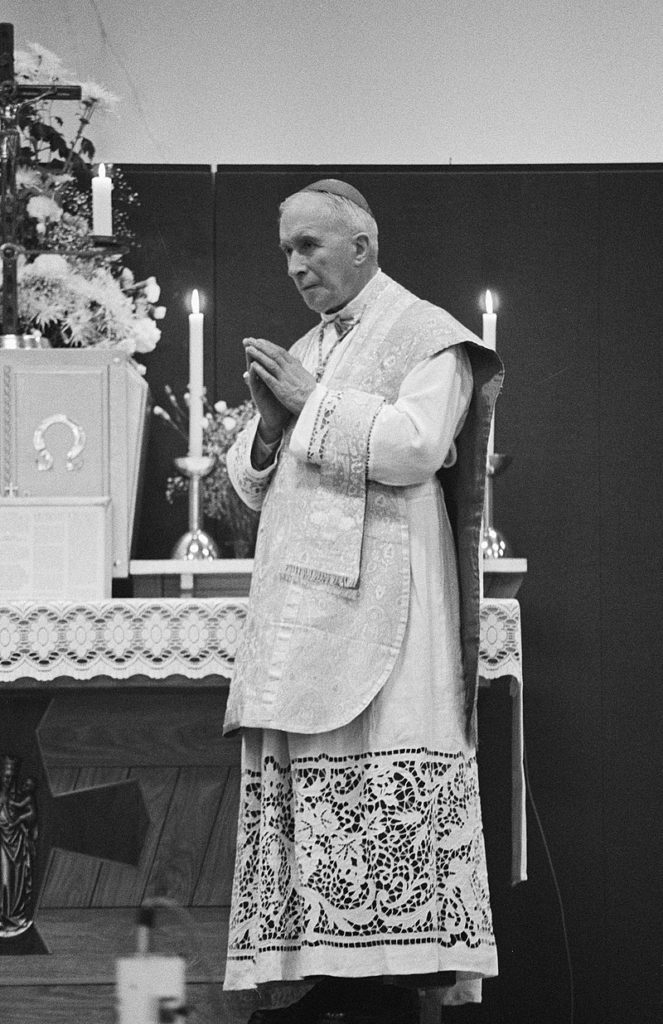
تأسست قبل 50 عامًا في سويسرا بموافقة الأسقف المحلي والفاتيكان ، دخلت SSPX لاحقًا في صراع مع الفاتيكان بسبب بعض الانتقادات لبيانات المجمع الفاتيكاني الثاني. وأوضح شنايدر أنهم أرادوا أيضًا الاحتفال حصريًا بالقداس اللاتيني التقليدي. وإزداد “عدم الثقة” بين SSPX والفاتيكان عندما لم يوافق البابا على المرشحين الأربعة المقترحين لتكريس الأسقفية. وتابع شنايدر أنه كان من الواضح بعد ذلك لـ Lefebvre ، أن الكرسي الرسولي لن “يوافق” على SSPX في المستقبل ، مع انتقاداته “البناءة” لبعض “تعابير الفاتيكان الثاني”.
أدت تكريسات عام 1988 لأربعة من أساقفتهم إلى حرمان لوفيفر وأساقفته الأربعة (بجانب الأسقف دي كاسترو ماير الذي كان حاضراً في التكريس).
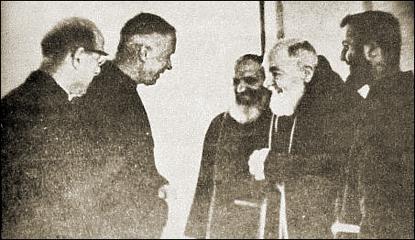
ومع ذلك ، في عهد البابا بنديكتوس السادس عشر ، “تم اتخاذ خطوتين مهمتين للغاية لتطبيع الوضع” ، تابع شنايدر قائلاً. في عام 2007 ، “أصدر البابا بنديكت” Summorum Pontificum “، يعطي الحرية للكهنة للاحتفال بهذا القداس؛ بطريقة ما أعاد تأسيس طقوس القداس التقليدي للكنيسة، والتي كانت دائمًا أحد المطالب الرئيسية لرئيس الأساقفة لوفيفر وجمعية بيوس العاشر”.
بعد ذلك بعامين ، تابع المطران شنايدر ، وأزال البابا بندكتس حرمان الأساقفة الأربعة. ومع ذلك ، فقد ترك هذا بعض المشاكل الأساسية مفتوحة. وبحسب الأسقف الكازاخستاني ، تم اتخاذ “خطوتان مهمتان أخريان” في عهد البابا فرنسيس. منح البابا فرانسيس كليات كهنة SSPX لسماع اعترافات “في جميع أنحاء العالم”.
علق الأسقف شنايدر قائلاً: “كان هذا كريمًا جدًا” ، ثم تابع:
من الصعب القول إن هؤلاء الكهنة هم خارج الكنيسة أو أنهم منشقون عندما يمتلكون حق ممارسة الأسرار بمن فيها سر الاعتراف التي قدمها البابا نفسه. ثم أذن البابا لأساقفة كهنة الرعية بمنح كهنة SSPX الكليات للمساعدة قانونًا في الزواج..
ذهب الأسقف الألماني ليشرح أنه يوجد الآن ، بجانب هاتين الخطوتين ، العديد من الأساقفة في العالم الذين قدموا بالفعل هيئة تدريس عامة لكهنة SSPX لمساعدة زيجات الشهود في أبرشياتهم ، بالإضافة إلى إخبار المؤمنين الذين يحضرون هذه الزيجات SSPX التي للمساعدة في هذه الجماهير مشروعة.
يعلق الأسقف: “لذلك نرى أن هناك حالة أقرب دائمًا إلى التطبيع الكنسي وهذا أمر جيد. يجب أن نكون سعداء لأن هذا الوضع يمكن حله وأن SSPX يمكن أن يكون حاضرًا ويعمل داخل الكنيسة لصالح الكنيسة، من أجل تجديد الكنيسة “من أجل الحفاظ على” تقليد الإيمان ، في الليتورجيا والحياة الروحية ، لأن SSPX في الواقع لا تفعل شيئًا آخر كما اعتقدت الكنيسة ، كما كانت تعبد الكنيسة ، كما عاشت الكنيسة ، حتى المجمع ، وكل هذه القرون “.
خلص المطران شنايدر إلى أنه “يجب أن نأمل أن يحصلوا [SSPX] على التقدير الكامل. آمل أن يكون ذلك جيدًا قريبًا. وبعد ذلك سيكون SSPX حقيقة طبيعية مثل الحقائق الأخرى داخل الكنيسة. إنه ضروري لعصرنا في هذه الأزمة ، في أوقات الظلام والاضطراب هذه “. وفقًا للأسقف ، من الضروري أن تُثري الكنيسة بمجموعات مثل SSPX ، “الكهنة والعلمانيون الذين يحافظون ببساطة على الإيمان من جميع الأعمار ، والقداس من جميع الأعمار ، وهذا سيفعلونه ، كهنة ومؤمنين” SSPX. “
عندما سئل من قبل المضيف الإذاعي عما إذا كان من المشروع حضور مصليات SSPX ، أجاب المطران شنايدر أنه إذا لم تكن هناك احتمالات أخرى ، “بالطبع ، لأنه يمكنهم الاعتراف بشكل قانوني” ، يمكن للمرء أن “يذهب إلى [سر] الاعتراف” بموافقة البابا. ونفس الكاهن الذي أعطاهم … الغفران – سيكون من الغريب أنهم لا يستطيعون المساعدة في قداسه “.
وتابع قائلاً: “إن القداس يهب خلاصًا النفوس. أعتقد أنه عندما يصعب على الكاثوليك العاديين الوصول إلى القداس التقليدي وهناك احتمال أقرب إلى جمعية القديس بيوس العاشر ، يمكنهم الذهاب إلى هناك أو الحصول على تعليم تعليمي جيد للأطفال أو الشباب. لذلك ، أعتقد أنهم ليسوا خارج الكنيسة – على الرغم من بعض المشاكل الكنسية التي لم يتم حلها ، يبدو لي أنه من المشروع أن يذهب الناس العاديون “إلى قداس SSPX.
عند الحديث عن موقف تم فيه قمع أو تقييد Summorum Pontificum وطُلب من الكهنة التقليديين الاحتفال بقداس نوفوس أوردو ، سأل المضيف الإذاعي أيضًا ، “إذا كان هذا سيحدث والعياذ بالله ، ولكن إذا كان ذلك سيحدث ، فكيف من شأنه أن يؤثر على SSPX؟ هل سيُطلب من هؤلاء الكهنة أيضًا الاحتفال بـ Novus Ordo؟ هل سيفعلون ذلك؟ “
ورد المطران شنايدر في إجابته الأخيرة بالقول:
لا أعتقد [أنه سيُطلب منهم الاحتفال بقداس نوفوس أوردو] ، وحتى إذا طُلب منهم ذلك ، فلن يفعلوا ذلك لأنهم لم يخضعوا بعد للخضوع الكامل للكرسي الرسولي. لذلك لن يتم إجبارهم ، على ما أعتقد. وفي هذه الحالة ، أعتقد أنه إذا اضطر الكهنة الآخرون لأخوية القديس بطرس وغيرهم للاحتفال بالقداس الجديد ، أعتقد أنه سيكون هناك كهنة سينضمون إلى جمعية القديس بيوس العاشر لأنهم ، في هذه الحالة ، المزيد من الاستقلال للحفاظ على تقليد الكنيسة. لكني آمل ألا يحدث ذلك. دعونا نصلي أولاً لكي ينير الروح القدس البابا حتى لا يحد من دوافع البابا بنديكت ، وأيضًا أن تحصل جمعية القديس بيوس العاشر على اعتراف الكنيسة الكامل.
كما قال أحد كبار مصادر الفاتيكان لـ LifeSite فيما يتعلق بالتقييد المحتمل لـ Summorum Pontificum ، فإن هذا النهج المحتمل لإلغاء القداس التقليدي أو الحد منه يتم على رؤوس المؤمنين المعنيين. قال:
الشائعات حول Summorum Pontificum لا تتعلق فقط بمسألة الطقوس نفسها ، بل تتعلق بالطريقة الديكتاتورية لاتخاذ القرار (بشكل معاكس تمامًا) على رؤوس الأشخاص المعنيين ، ومعاملة الأطفال مثل الأطفال الصغار الذين يجبرون بالقوة على اتباع ( من المفترض) رؤية أفضل لوالديهم ، أو مجندين مثلهم في ساحة ثكنات بروسية حفرها رقيب عنيد دون أي معنى أو سبب.
من المهم الإشارة ، حتى قبل نشر الإملاء ، إلى الطريقة المستحيلة تمامًا التي يميل أيديولوجيو فراتيللي توتي إلى التصرف بها. يتم التشهير بالبعض الآخر على أنهم صارمون من أجل جعل عملًا صارمًا مقبولًا ضدهم أمام العالم يتعارض مع جميع مبادئ الأخوة المسيحية و “الحنان” الذي كثيرًا ما يُقتبس منه.
Bishop Schneider: Suppression of Summorum Pontificum would be an ‘abuse of power’
The auxiliary bishop of Astana, Kazakhstan discussed what would happen if the Vatican moved to restrict the Traditional Latin Mass. Commenting on the situation of the SSPX – and whether priests might seek to join the SSPX should the Old Mass be restricted – Schneider said it is ‘difficult’ to say that SSPX priests ‘are outside the church or are schismatic when they possess the ordinary faculties of Confession given by the Pope himself.’
Bishop Athanasius Schneider, in a new radio interview, has commented on the rumors that Pope Benedict’s motu proprio Summorum Pontificum, which freed the Traditional Latin Mass, might be soon altered so as to limit the use of this rite. The prelate thinks that such a move would be an “abuse of power” and a “great damage to the life of the Church.” Should it come, priests “can continue to celebrate this Mass because it is the Mass of the entire Church and the faithful have a right [to] what’s holy.” Schneider also thinks that the Society of Saint Pius X (SSPX) is “not outside the Church,” that one can go there for the Sacraments, and that, in case Rome would insist other traditional priests concelebrate the Novus Ordo, some of these priests might actually join the SSPX.
Speaking on radio with Joe McClane of Catholic Drive Time, Bishop Schneider, the auxiliary bishop of Astana, Kazakhstan, first discussed the matter of Summorum Pontificum. As LifeSite has reported, there are numerous rumors that the Pope is planning to restrict the use of the Traditional Latin Mass. Catholic author Dr. Taylor Marshall thinks that the Pope could do so by insisting that all traditional priests occasionally concelebrate with their diocesan bishop and priest in a Novus Ordo Mass. The traditional Catholic blog Rorate Caeli reported that a document modifying Summorum Pontificum might come as early as this Friday. The French national newspaper Le Figaro also had a report saying that the document has already been signed and is awaiting publication.
When asked about this possible development, Bishop Schneider stated that “it would be a great damage for the life of the Church.” He insisted that “the traditional liturgy is a treasure of the entire Church, not only of the present day, but also of the Church of the past centuries.”
“It is a treasure of the saints; almost all the saints we know grew up in this form of the liturgy,” the prelate added. To limit the use of the traditional rite, Bishop Schneider insisted, is “an abuse of power.”
Speaking about such “a possible hypothetical situation, if it will really happen,” Schneider expounded, then priests “can continue to celebrate this Mass because it is the Mass of the entire Church and the faithful have a right [to] what’s holy.” He thinks that the priests and “especially the young people” will not allow themselves “to be deprived of this great treasure of faith, of spirituality.”
When asked by his radio host Joe McClane whether Rome can “force traditional priests to say the New Mass,” Bishop Schneider responded by saying that the Vatican would have the “right” to do so, but “I think it would be a violation of the spirituality.” To force these priests to celebrate the New Mass (the Novus Ordo), Schneider went on to say, would be a “violation, kind of spiritual, of their rights, which the Church gave them.”
Many traditional priests were ordained in the traditional rite, and they grew up in it, noted Schneider. He reminded his audience that when priests are ordained in a certain rite – for example, an Eastern Catholic rite –they cannot be forced to offer Mass in another rite. Stated the bishop:
The Church cannot force someone from another rite, for example, to celebrate another rite. And these two forms of the…Mass, the Novus Ordo and the traditional one, are really [different] when we are honest. They are two different rites, not only forms, because this is, it’s a difference, a very great difference. And so I think they should not be forced to do this.
Commenting on the possibility that traditional priests would be forced to celebrate a Novus Ordo Mass – for the sake of “unity,” as some would say – and that some priests, for example of the Priestly Fraternity of St. Peter (FSSP), might refuse to do so, Bishop Schneider was not sure what the Vatican would then do. But he insisted that concelebration in one rite was “never a requirement” as “a sign of unity.”
“The concelebration was never a requirement in the entire history of the Church as a sign of unity with the local bishop or with the pope,” he said.
Here, he referred to clergy from the Eastern rite churches, whose priests “when uniting themselves with Rome in the past centuries,” were not asked to concelebrate with the Holy Father.
‘Let us pray first that the Holy Spirit will illuminate the Pope not to limit the motu proprio of Pope Benedict and also that the Society of Saint Pius X can receive a fuller recognition from the Church.’
Bishop Schneider also explained that concelebration was very limited in the past 1,500 years and “forbidden by the old canon law.” For priests, there was only case of concelebration: at their own priestly ordination, they would then concelebrate with their bishops. Such an obligation to concelebrate, he continued, “will contradict the entire history of the Church.” Therefore, “it would be an abuse of power for force a priest to concelebrate.”
Unfortunately, as Bishop Schneider expounded, it is not possible for those priests who would refuse to concelebrate and receive penalties, to appeal against the penalties, because there can “never be an appeal against the Vatican.”
Radio host McClane then raised the question of the Society of St. Pius X (SSPX), admitting that “there are a lot of myths and misconceptions about what the average layperson thinks and knows about the SSPX.” He asked Bishop Schneider to comment on the canonical status of the SSPX, since the bishop was a member of the visitation of the SSPX that the Vatican had undertaken under Pope Francis in 2015, thus having been able to receive “incredible insight into this.” The speaker admitted to having had “false information for the longest time.”
“The Society of Saint Pius X,” Schneider responded, “was founded by Marcel Lefebvre, a very holy man, I think, a man of God, who had a lot of merits in a difficult time of the Church, even during the Council and after the Council.”
Founded 50 years ago in Switzerland with the approval of the local bishop and of the Vatican, the SSPX later came “into conflict with the Vatican” over some criticism of the statements of the Second Vatican Council. They also wanted to celebrate exclusively the traditional Latin Mass, Schneider explained. Then “mistrust” grew between the SSPX and the Vatican when the Pope would not approve of their proposed four candidates for the episcopal consecrations. It was then clear to Lefebvre, Schneider continued, that the Holy See would not “approve” a future SSPX, with its “constructive” criticisms of some “expressions of Vatican II.”
The 1988 consecrations of four of their own bishops then led to the excommunication of Lefebvre and his four bishops (next to Bishop de Castro Mayer who had been present at the consecrations).
Under Pope Benedict XVI, however, “there were made two very important steps to normalize the situation,” Schneider went on to say. In 2007, “Pope Benedict issued a Summorum Pontificum, giving the freedom to the priests to celebrate this Mass; in some way he re-established the rite of the traditional Mass of the Church, which was always one of the main demands of Archbishop Lefebvre and the Society of Pius X.”
Two years later, Bishop Schneider continued, Pope Benedict removed the excommunication of the four bishops. However, this still left some canonical problems open. It was under Pope Francis that “two other important steps” were taken, according to the Kazakh prelate. Pope Francis granted SSPX priests faculties to hear Confessions, extended “all over the world.”
“That was very generous,” Bishop Schneider commented, and then continued:
It’s difficult to say that these priests are outside the church or are schismatic when they possess the ordinary faculties of Confession given by the Pope himself. And then the pope authorized the bishops of the parish priests to grant the priests of SSPX the faculties to assist canonically at marriages, matrimonies.
The German prelate went on to explain that there are now, next to these two steps, several bishops in the world who already gave a general faculty to SSPX priests to assist witness marriages in their respective dioceses, in addition to telling the faithful who attend such SSPX marriages that to assist at these Masses is licit.
Comments the bishop: “So we see there is a situation which is always closer to a canonical normalization and this is good. We have to be happy that this situation can be resolved and the SSPX can be present and operate inside the Church for the benefit of the Church, for the renewal of the Church” for the sake of preserving “the tradition of the faith, in the liturgy, and the spiritual life, because basically, actually the SSPX does no other thing as the Church believed, as the Church worshiped, as the Church lived, until the Council, all these centuries.”
Bishop Schneider concluded that “we have to hope they [the SSPX] will get the full recognition. I hope soon, it would be good. And then the SSPX will be a normal reality as other realities inside the Church. It is necessary for our time in this crisis, in these times of darkness and confusion.” According to the prelate, it is necessary that the Church be enriched by such communities as the SSPX, “priests and laypeople who simply keep the faith of all ages, the Mass of all ages, and this they will do, the priests and faithful of the SSPX.”
Asked by the radio host as to whether it is licit to attend SSPX chapels, Bishop Schneider answered that if there are no other possibilities, “of course, because they can confess licitly,” one can “go to the [Sacrament of] Confession with the approval of the pope. And the same priest who gave them…absolution – it would be strange that they cannot assist at his Mass.”
He went on to say that “the Sacraments, the Holy Mass are given for the salvation of souls, for the benefit of the souls. I think that when it is difficult for the normal Catholics to reach the Traditional Mass and there is a possibility closer to the Society of St. Pius X, they can go there or to get a good catechism for the children or young people. Therefore, I think since they are not outside the Church – in spite of some unresolved canonical problems, it seems to me that it is licit that laypeople can go” to SSPX Masses.
Speaking of a situation in which Summorum Pontificum were to be suppressed or limited and traditional priests were asked to celebrate the Novus Ordo Mass, the radio host also asked, “if that were to happen and God forbid, but if that were to happen, how would that affect the SSPX? Would those priests also be asked to celebrate the Novus Ordo? Would they do that?”
Bishop Schneider, in his final answer, responded by saying:
I think not [that they will be asked to celebrate the Novus Ordo Mass], and even if they will be asked, they will not do this because they are not yet under complete submission to the Holy See. Therefore they will not be forced, I think. And in this case, I think, if the other priests of the Fraternity of St. Peter and others will be forced to concelebrate the New Mass, I think that there will be priests who will join the Society of Saint Pius X because they have, in this case, some more independence to keep the tradition of the Church. But I hope that it will not happen. Let us pray first that the Holy Spirit will illuminate the Pope not to limit the motu proprio of Pope Benedict and also that the Society of Saint Pius X can receive a fuller recognition from the Church.
As one senior Vatican source told LifeSite with regard to the possible restriction of Summorum Pontificum, this probable approach of canceling or limiting the traditional Mass is being done over the heads of the faithful concerned. He stated:
The rumors about Summorum Pontificum are not only about the matter of the rite itself, but about the dictatorial way of deciding (quite antisynodally) over the heads of the people concerned, treating them like little defiant children who are forced by force to follow the (supposedly) better insight of their parents, or like recruits in a Prussian barracks yard drilled by an obdurate sergeant without any sense or reason.
It is important to point out, even before the publication of the dictate, the totally impossible way in which the Fratelli tutti ideologues tend to behave. Others are defamed as rigid in order to make plausible against them a rigorous action before the world that contradicts all the principles of Christian fraternity and the so often quoted “tenderness.”
Wounds are constantly being reopened and trouble spots opened that are in opposition to St. Peter’s service to the unity of the whole Church in faith and fidelity to the revealed truth.
 Agoraleaks Agoraleaks
Agoraleaks Agoraleaks


